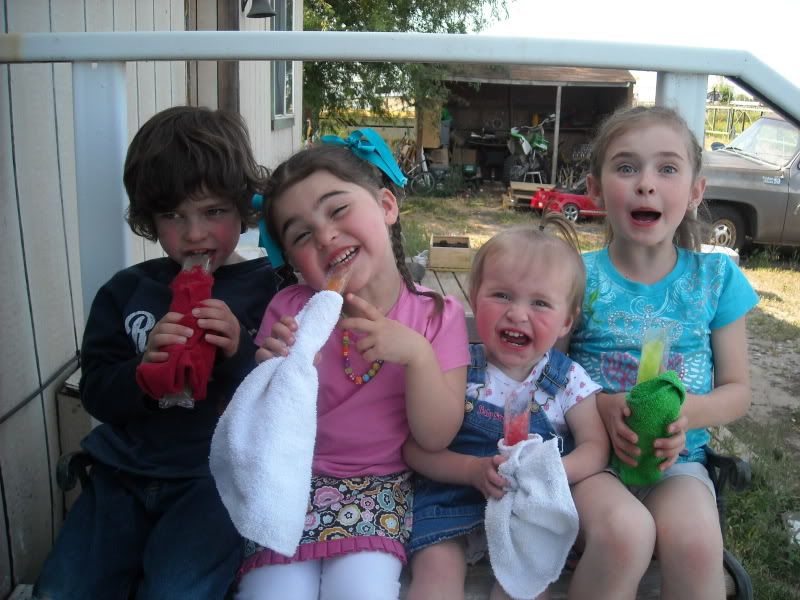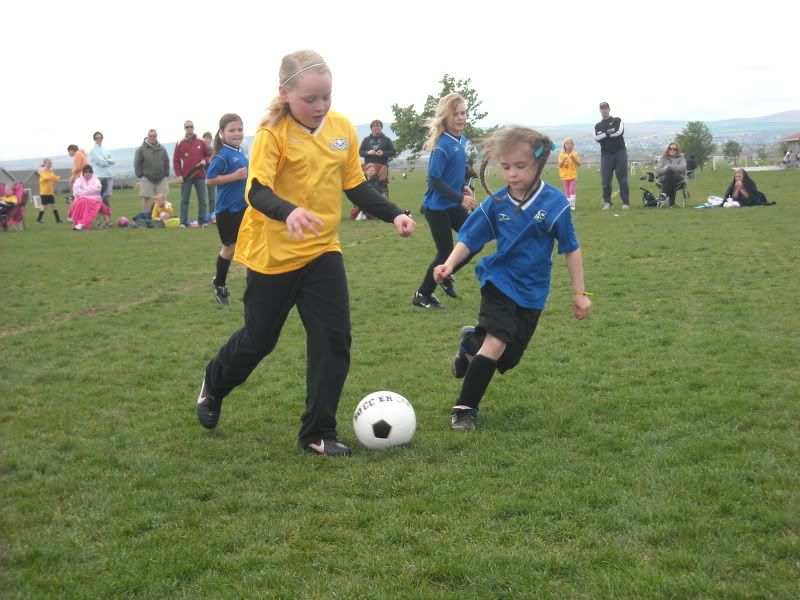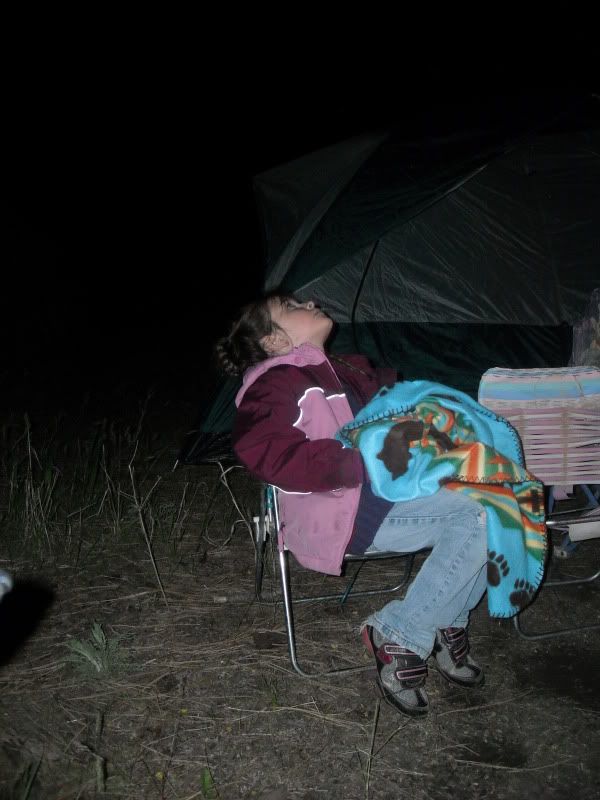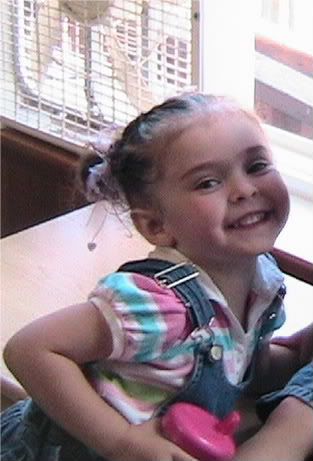This is taken from John Taylor Gatto's book, Dumbing Us Down: The Hidden Curriculum of Compulsory Schooling
I accept this award on behalf of all the fine teachers I've known over the years who've struggled to make their transactions with children honorable ones, men and women who were never complacent, always questioning, always wrestling to define and redefine what the word "education" should mean. A Teacher of the Year is not the best teacher around (those people are too quiet to be easily uncovered), but she or he is a standard-bearer, representative of these private people who spend their lives gladly in the service of children. This is their award as well as mine.
1 . We live in a time of great school crisis linked to an even greater social crisis. Our nation ranks at the bottom of nineteen industrial nations in reading, writing, and arithmetic. At the very bottom. The world's narcotic economy is based upon our consumption of this commodity; if we didn't buy so many powdered dreams the business would collapse - and schools are an important sales outlet. Our teenage suicide rate is the highest in the world, and suicidal kids are rich kids for the most part, not the poor. In Manhattan, seventy percent of all new marriages last less than five years. So something is wrong for sure.
This great crisis which we witness in our schools is interlinked with a greater social crisis in the community. We seem to have lost our identity. Children and old people are penned up and locked away from the business of the world to a degree without precedent; nobody talks to them anymore, and without children and old people mixing in daily life; a community has no future and no past, only a continuous present. In fact the name "community" hardly applies to the way we interact with each other. We live in networks, not communities, and everyone I know is lonely because of that. School is a major actor in this tragedy, as it is a major actor in the widening gulf among social classes. Using school as a sorting mechanism, we appear to be on the way to creating a caste system, complete with untouchables who wander through subway trains begging and who sleep upon the streets.
I've noticed a fascinating phenomenon in my twenty-five years of teaching: that schools and schooling are increasingly irrelevant to the great enterprises of the planet. No one believes anymore that scientists are trained in science classes or politicians in civics classes or poets in English classes. The truth is that schools don't really teach anything except how to obey orders. This is a great mystery to me because thousands of humane, caring people work in schools, as teachers and aides and administrators, but the abstract logic of the institution overwhelms their individual contributions. Although teachers do care and do work very, very hard, the institution is psychopathic; it has no conscience. It rings a bell and the young man in the middle of writing a poem must close his notebook and move to a different cell where he must memorize that humans and monkeys derive from a common ancestor.
2 . Our form of compulsory schooling is an invention of the State of Massachusetts around 1850. It was resisted - sometimes with guns - by an estimated eighty percent of the Massachusetts population, the last outpost in Barnstable on Cape Cod not surrendering its children until the 1880s, when the area was seized by militia and children marched to school under guard.
Now here is a curious idea to ponder. Senator Ted Kennedy's office released a paper not too long ago that prior to compulsory education the state literacy rate was ninety-eight percent, and after it the figure never exceeded ninety-one percent, where it stands in 1990.
Here is another curiosity to think about. The home-schooling movement has quietly grown to a size where one and half million young people are being educated entirely by their own parents; last month the education press reported the amazing news that children schooled at home seem to be five or even ten years ahead of their formally trained peers in their ability to think.
3. 1 don't think we'll get rid of schools any time soon, certainly not in my lifetime, but if we're going to change what's rapidly becoming a disaster of ignorance, we need to realize that the school institution "schools" very well, though it does not "educate;" that's inherent in the design of the thing. It's not the fault of bad teachers or too little money spent. It's just impossible for education and schooling ever to be the same thing.
Schools were designed by Horace Mann and by Sears and Harper of the University of Chicago and by Thorndyke of Columbia Teachers College and by some other men to be instruments of the scientific management of a mass population. Schools are intended to produce, through the application of formulas, formulaic human beings whose behavior can be predicted and controlled.
To a very great extent schools succeed in doing this, but in a national order increasingly disintegrated, in a national order in which the only "successful" people are independent, self-reliant, confident, and individualistic (because community life which protects the dependent and the weak is dead and only networks remain), the products of schooling are, as I've said, irrelevant. Well-schooled people are irrelevant. They can sell film and razor blades, push paper and talk on telephones, or sit mindlessly before a flickering computer terminal, but as human beings they are useless. Useless to others and useless to themselves.
The daily misery around us is, I think, in large measure caused by the fact that, as Paul Goodman put it thirty years ago, we force children to grow up absurd. Any reform in schooling has to deal with its absurdities.
It is absurd and anti-life to be part of a system that compels you to sit in confinement with people of exactly the same age and social class. That system effectively cuts you off from the immense diversity of life and the synergy of variety; indeed it cuts you off from your own past and future, sealing you in a continuous present much the same way television does.
It is absurd and anti-life to move from cell to cell at the sound of a gong for every day of your natural youth in an institution that allows you no privacy and even follows you into the sanctuary of your home demanding that you do its "homework."
"How will they learn to read?" you ask, and my answer is "Remember the lessons of Massachusetts." When children are given whole lives instead of age-graded ones in cellblocks they learn to read, write, and do arithmetic with ease, if those things make sense in the kind of life that unfolds around them.
But keep in mind that in the United States almost nobody who reads, writes, or does arithmetic gets much respect. We are a land of talkers; we pay talkers the most and admire talkers the most and so our children talk constantly, following the public models of television and schoolteachers. It is very difficult to teach the "basics" anymore because they really aren't basic to the society we've made.
4. Two institutions at present control our children's lives: television and schooling, in that order. Both of these reduce the real world of wisdom, fortitude, temperance, and justice to a never-ending, nonstop abstraction. In centuries past, the time of childhood and adolescence would have been occupied in real work, real charity, real adventures, and the realistic search for mentors who might teach what you really wanted to learn. A great deal of time was spent in community pursuits, practicing affection, meeting and studying every level of the community, learning how to make a home, and dozens of other tasks necessary to becoming a whole man or woman.
But here is the calculus of time the children I teach must deal with:
Think of the phenomena which are killing us as a nation - narcotic drugs, brainless competition, recreational sex, the pornography of violence, gambling, and alcohol, and the worst pornography of all: lives devoted to buying things, accumulation as a philosophy -all of these are addictions of dependent personalities, and this is what our brand of schooling must inevitably produce.
5. I want to tell you what the effect on our children is of taking all their time from them - time they need to grow up - and forcing them to spend it on abstractions.You need to hear this because any reform that doesn't attack these specific pathologies will be nothing more than a facade.
6. What can be done?
First, we need a ferocious national debate that doesn't quit, day after day, year after year, the kind of continuous debate that journalism finds boring. We need to scream and argue about this school thing until it is fixed or broken beyond repair, one or the other. If we can fix it, fine; if we cannot, then the success of home-schooling shows a different road that has great promise. Pouring the money we now pour into schooling back into family education might cure two ailments with one medicine, repairing families as it repairs children.
Genuine reform is possible but it shouldn't cost anything. More money and more people pumped into this sick institution will only make it sicker. We need to rethink the fundamental premises of schooling and decide what it is we want all children to learn and why. For 140 years this nation has tiled to impose objectives downward from a lofty command center made up of "experts," a central elite of social engineers. It hasn't worked. It won't work. And it is a gross betrayal of the democratic promise that once made this nation a noble experiment. The Russian attempt to create Plato's republic in Eastern Europe has exploded before our eyes; our own attempt to impose the same sort of central orthodoxy using the schools as an instrument is also coming apart at the seams, albeit more slowly and painfully. It doesn't work because its fundamental premises are mechanical, antihuman, and hostile to family life. Lives can be controlled by machine education but they will always fight back with weapons of social pathology: drugs, violence, self-destruction, indifference, and the symptoms I see in the children I teach.
7. It's high time we looked backwards to regain an educational philosophy that works. One I like particularly well has been a favorite of the ruling classes of Europe for thousands of years. I use as much of it as I can manage in my own teaching, as much, that is, as I can get away with, given the present institution of compulsory schooling. I think it works just as well for poor children as for rich ones.
At the core of this elite system of education is the belief that self-knowledge is the only basis of true knowledge. Everywhere in this system, at every age, you will find arrangements that work to place the child alone in an unguided setting with a problem to solve. Sometimes the problem is fraught with great risks, such as the problem of galloping a horse or malting it jump, but that, of course, is a problem successfully solved by thousands of elite children before the age of ten. Can you imagine anyone who had mastered such a challenge ever lacking confidence in his ability to do anything? Sometimes the problem is the problem of mastering solitude, as Thoreau did at Walden Pond, or Einstein did in the Swiss customs house.
Right now we are taking from our children all the time that they need to develop self-knowledge. That has to stop. We have to invent school experiences that give a lot of that time back. We need to trust children from a very early age with independent study, perhaps arranged in school, but which takes place away from the institutional setting. We need to invent curricula where each kid has a chance to develop private uniqueness and self-reliance.
A short time ago I took $70 and sent a twelve-year-old girl from my class, with her non-English-speaking mother, on a bus down the New Jersey coast to take the police chief of Seabright to lunch and apologize for polluting his beach with a discarded Gatorade bottle. In exchange for this public apology I had arranged with the police chief for the girl to have a one-day apprenticeship in small town police procedures. A few days later two more of my twelve-year-old kids traveled alone from Harlem to West Thirty-first street where they began an apprenticeship with a newspaper editor; later three of my kids found themselves in the middle of the Jersey swamps at six in the morning, studying the mind of a trucking company president as he dispatched eighteen-wheelers to Dallas, Chicago, and Los Angeles.
Are these "special" children in a "special" program? Well, in one sense yes, but nobody knows about this program but myself and the kids. They're just nice kids from central Harlem, bright and alert, but so badly schooled when they came to me that most of them couldn't add or subtract with any fluency. And not a single one knew the population of New York City or how far New York is from California.
Does that worry me? Of course; but I am confident that as they gain self-knowledge they'll also become self-teachers - and only self-teaching has any lasting value.
We've got to give kids independent time right away because that is the key to self-knowledge, and we must reinvolve them with the real world as fast as possible so that the independent time can be spent on something other than abstraction. This is an emergency; it requires drastic action to correct.
8. What else does a restructured school system need? It needs to stop being a parasite on the working community. Of all the pages in the human ledger, only our tortured country has warehoused children and asked nothing of them in service of the general good. For a while I think we need to make community service a required part of schooling. Besides the experience in acting unselfishly that it will teach, it is the quickest way to give young children real responsibility in the mainstream of life.
For five years I ran a guerrilla school program where I had every kid, rich and poor, smart and dipsy, give 320 hours a year of hard community service. Dozens of those kids came back to me years later, grown up, and told me that the experience of helping someone else had changed their lives. It had taught them to see in new ways, to rethink goals and values. It happened when they were thirteen, in my Lab School program, and was only possible because my rich school district was in chaos. When "stability" returned, the Lab closed. It was too successful with a widely mixed group of kids, at too small a cost, to be allowed to continue.
Independent study, community service, adventures and experience, large doses of privacy and solitude, a thousand different apprenticeships, the one-day variety or longer - these are all powerful, cheap, and effective ways to start a real reform of schooling. But no large-scale reform is ever going to work to repair our damaged children and our damaged society until we force open the idea of "school to include family as the main engine of education. If we use schooling to break children away from parents - and make no mistake, that has been the central function of schools since John Cotton announced it as the purpose of the Bay Colony schools in 1650 and Horace Mann announced it as the purpose of Massachusetts schools in 1850 - we're going to continue to have the horror show we have right now.
The "Curriculum of Family" is at the heart of any good life. We've gotten away from that curriculum; it's time to return to it. The way to sanity in education is for our schools to take the lead in releasing the stranglehold of institutions on family life, to promote during schooltime confluences of parent and child that will strengthen family bonds. That was my real purpose in sending the girl and her mother down the Jersey coast to meet the police chief.
I have many ideas for formulating a family curriculum and my guess is that a lot of you have many ideas, too. Our greatest problem in getting the kind of grassroots thinking going that could reform schooling is that we have large, vested interests preempting all the air time and profiting from schooling as it is, despite rhetoric to the contrary.
We have to demand that new voices and new ideas get a hearing, my ideas and yours. We've all had a bellyful of authorized voices mediated by television and the press; a decade-long free-for-all debate is what is called for now, not any more "expert" opinions. Experts in education have never been right; their "solutions" are expensive, self-serving, and always involve further centralization. We've seen the results.
If s time for a return to democracy, individuality, and family.
Mr. Gatto climaxed his teaching career as New York State Teacher of the Year after being named New York City Teacher of the Year on three occasions. He quit teaching on the OP ED page of the Wall Street Journal in 1991 while still New York State Teacher of the Year, claiming that he was no longer willing to hurt children. Later that year he was the subject of a show at Carnegie Hall called "An Evening With John Taylor Gatto," which launched a career of public speaking in the area of school reform, which has taken Gatto over a million and a half miles in all fifty states and seven foreign countries. In 1992, he was named Secretary of Education in the Libertarian Party Shadow Cabinet, and he has been included in Who's Who in America from 1996 on. In 1997, he was given the Alexis de Tocqueville Award for his contributions to the cause of liberty, and was named to the Board of Advisors of the National TV-Turnoff Week.
Mr. Gatto's books include: Dumbing Us Down: The Hidden Curriculum of Compulsory Schooling (1992); The Exhausted School
(1992); The Exhausted School  (1993); A Different Kind of Teacher
(1993); A Different Kind of Teacher  (2000); and The Underground History Of American Education
(2000); and The Underground History Of American Education (2001)
(2001)
This speech was given by the author on 31 January 1990 in accepting an award from the New York State Senate naming him New York City Teacher of the Year.
I accept this award on behalf of all the fine teachers I've known over the years who've struggled to make their transactions with children honorable ones, men and women who were never complacent, always questioning, always wrestling to define and redefine what the word "education" should mean. A Teacher of the Year is not the best teacher around (those people are too quiet to be easily uncovered), but she or he is a standard-bearer, representative of these private people who spend their lives gladly in the service of children. This is their award as well as mine.
This great crisis which we witness in our schools is interlinked with a greater social crisis in the community. We seem to have lost our identity. Children and old people are penned up and locked away from the business of the world to a degree without precedent; nobody talks to them anymore, and without children and old people mixing in daily life; a community has no future and no past, only a continuous present. In fact the name "community" hardly applies to the way we interact with each other. We live in networks, not communities, and everyone I know is lonely because of that. School is a major actor in this tragedy, as it is a major actor in the widening gulf among social classes. Using school as a sorting mechanism, we appear to be on the way to creating a caste system, complete with untouchables who wander through subway trains begging and who sleep upon the streets.
I've noticed a fascinating phenomenon in my twenty-five years of teaching: that schools and schooling are increasingly irrelevant to the great enterprises of the planet. No one believes anymore that scientists are trained in science classes or politicians in civics classes or poets in English classes. The truth is that schools don't really teach anything except how to obey orders. This is a great mystery to me because thousands of humane, caring people work in schools, as teachers and aides and administrators, but the abstract logic of the institution overwhelms their individual contributions. Although teachers do care and do work very, very hard, the institution is psychopathic; it has no conscience. It rings a bell and the young man in the middle of writing a poem must close his notebook and move to a different cell where he must memorize that humans and monkeys derive from a common ancestor.
Now here is a curious idea to ponder. Senator Ted Kennedy's office released a paper not too long ago that prior to compulsory education the state literacy rate was ninety-eight percent, and after it the figure never exceeded ninety-one percent, where it stands in 1990.
Here is another curiosity to think about. The home-schooling movement has quietly grown to a size where one and half million young people are being educated entirely by their own parents; last month the education press reported the amazing news that children schooled at home seem to be five or even ten years ahead of their formally trained peers in their ability to think.
Schools were designed by Horace Mann and by Sears and Harper of the University of Chicago and by Thorndyke of Columbia Teachers College and by some other men to be instruments of the scientific management of a mass population. Schools are intended to produce, through the application of formulas, formulaic human beings whose behavior can be predicted and controlled.
To a very great extent schools succeed in doing this, but in a national order increasingly disintegrated, in a national order in which the only "successful" people are independent, self-reliant, confident, and individualistic (because community life which protects the dependent and the weak is dead and only networks remain), the products of schooling are, as I've said, irrelevant. Well-schooled people are irrelevant. They can sell film and razor blades, push paper and talk on telephones, or sit mindlessly before a flickering computer terminal, but as human beings they are useless. Useless to others and useless to themselves.
The daily misery around us is, I think, in large measure caused by the fact that, as Paul Goodman put it thirty years ago, we force children to grow up absurd. Any reform in schooling has to deal with its absurdities.
It is absurd and anti-life to be part of a system that compels you to sit in confinement with people of exactly the same age and social class. That system effectively cuts you off from the immense diversity of life and the synergy of variety; indeed it cuts you off from your own past and future, sealing you in a continuous present much the same way television does.
It is absurd and anti-life to move from cell to cell at the sound of a gong for every day of your natural youth in an institution that allows you no privacy and even follows you into the sanctuary of your home demanding that you do its "homework."
"How will they learn to read?" you ask, and my answer is "Remember the lessons of Massachusetts." When children are given whole lives instead of age-graded ones in cellblocks they learn to read, write, and do arithmetic with ease, if those things make sense in the kind of life that unfolds around them.
But keep in mind that in the United States almost nobody who reads, writes, or does arithmetic gets much respect. We are a land of talkers; we pay talkers the most and admire talkers the most and so our children talk constantly, following the public models of television and schoolteachers. It is very difficult to teach the "basics" anymore because they really aren't basic to the society we've made.
But here is the calculus of time the children I teach must deal with:
Out of the 168 hours in each week my children sleep 56. That leaves them 112 hours a week out of which to fashion a self. According to recent reports children watch 55 hours of television a week. That then leaves them 57 hours a week in which to grow up.It's not enough, is it? The richer the kid, of course, the less television he or she watches, but the rich kid's time is just as narrowly prescribed by a somewhat broader catalogue of commercial entertainments and the inevitable assignment to a series of private lessons in areas seldom of his or her own choice. But these activities are just a more cosmetic way to create dependent human beings, unable to fill their own hours, unable to initiate lines of meaning to give substance and pleasure to their existence. It's a national disease, this dependency and aimlessness, and I think schooling and television and lessons have a lot to do with it.
My children attend school 30 hours a week, use about 8 hours getting ready for and traveling to and from school, and spend an average of 7 hours a week in homework - a total of 45 hours. During that time they are under constant surveillance. They have no private time or private space and are disciplined if they try to assert individuality in the use of time or space. That leaves them 12 hours a week out of which to create a unique consciousness. Of course my kids eat, too, and that takes some time - not much because they've lost the tradition of family dining - but if we allot 3 hours a week to evening meals we arrive at a net amount of private time for each child of 9 hours per week.
Think of the phenomena which are killing us as a nation - narcotic drugs, brainless competition, recreational sex, the pornography of violence, gambling, and alcohol, and the worst pornography of all: lives devoted to buying things, accumulation as a philosophy -all of these are addictions of dependent personalities, and this is what our brand of schooling must inevitably produce.
1. The children I teach are indifferent to the adult world. This defies the experience of thousands of years. A close study of what big people were up to was always the most exciting occupation of youth, but nobody wants children to grow up these days, least of all the children: and who can blame them? Toys are us. 2. The children I teach have almost no curiosity, and what little they do have is transitory. They cannot concentrate for very long, even on things they choose to do. Can you see a connection between the bells ringing again and again to change classes and this phenomenon of evanescent attention?I could name a few other conditions that school reform will have to tackle if our national decline is to be arrested, but by now you will have grasped my thesis, whether you agree with it or not. Either schools have caused these pathologies, or television has, or both. It's a simple matter of arithmetic - between schooling and television, all the time the children have is eaten up. There simply isn't enough other time in the experience of our kids for there to be other significant causes.
3. The children I teach have a poor sense of the future, of how tomorrow is inextricably linked to today. As I said before, they live in a continuous present, the exact moment they are in is the boundary of their consciousness.
4. The children I teach are ahistorical; they have no sense of how the past has predestinated their own present, limiting their choices, shaping their values and lives.
5. The children I teach are cruel to each other; they lack compassion for misfortune; they laugh at weakness: they have contempt for people whose need for help shows too plainly.
6. The children I teach are uneasy with intimacy or candor. They cannot deal with genuine intimacy because of a lifelong habit of preserving a secret inner self inside a larger outer personality made up of artificial bits and pieces of behavior borrowed from television or acquired to manipulate teachers. Because they are not who they represent themselves to be, the disguise wears thin in the presence of intimacy; so intimate relationships have to be avoided.
7. The children I teach are materialistic, following the lead of schoolteachers who materialistically "grade everything' and television mentors who offer everything in the world for sale.
8. The children I teach are dependent, passive, and timid in the presence of new challenges. This timidity is frequently masked by surface bravado, or by anger or aggressiveness, but underneath is a vacuum without fortitude.
First, we need a ferocious national debate that doesn't quit, day after day, year after year, the kind of continuous debate that journalism finds boring. We need to scream and argue about this school thing until it is fixed or broken beyond repair, one or the other. If we can fix it, fine; if we cannot, then the success of home-schooling shows a different road that has great promise. Pouring the money we now pour into schooling back into family education might cure two ailments with one medicine, repairing families as it repairs children.
Genuine reform is possible but it shouldn't cost anything. More money and more people pumped into this sick institution will only make it sicker. We need to rethink the fundamental premises of schooling and decide what it is we want all children to learn and why. For 140 years this nation has tiled to impose objectives downward from a lofty command center made up of "experts," a central elite of social engineers. It hasn't worked. It won't work. And it is a gross betrayal of the democratic promise that once made this nation a noble experiment. The Russian attempt to create Plato's republic in Eastern Europe has exploded before our eyes; our own attempt to impose the same sort of central orthodoxy using the schools as an instrument is also coming apart at the seams, albeit more slowly and painfully. It doesn't work because its fundamental premises are mechanical, antihuman, and hostile to family life. Lives can be controlled by machine education but they will always fight back with weapons of social pathology: drugs, violence, self-destruction, indifference, and the symptoms I see in the children I teach.
At the core of this elite system of education is the belief that self-knowledge is the only basis of true knowledge. Everywhere in this system, at every age, you will find arrangements that work to place the child alone in an unguided setting with a problem to solve. Sometimes the problem is fraught with great risks, such as the problem of galloping a horse or malting it jump, but that, of course, is a problem successfully solved by thousands of elite children before the age of ten. Can you imagine anyone who had mastered such a challenge ever lacking confidence in his ability to do anything? Sometimes the problem is the problem of mastering solitude, as Thoreau did at Walden Pond, or Einstein did in the Swiss customs house.
Right now we are taking from our children all the time that they need to develop self-knowledge. That has to stop. We have to invent school experiences that give a lot of that time back. We need to trust children from a very early age with independent study, perhaps arranged in school, but which takes place away from the institutional setting. We need to invent curricula where each kid has a chance to develop private uniqueness and self-reliance.
A short time ago I took $70 and sent a twelve-year-old girl from my class, with her non-English-speaking mother, on a bus down the New Jersey coast to take the police chief of Seabright to lunch and apologize for polluting his beach with a discarded Gatorade bottle. In exchange for this public apology I had arranged with the police chief for the girl to have a one-day apprenticeship in small town police procedures. A few days later two more of my twelve-year-old kids traveled alone from Harlem to West Thirty-first street where they began an apprenticeship with a newspaper editor; later three of my kids found themselves in the middle of the Jersey swamps at six in the morning, studying the mind of a trucking company president as he dispatched eighteen-wheelers to Dallas, Chicago, and Los Angeles.
Are these "special" children in a "special" program? Well, in one sense yes, but nobody knows about this program but myself and the kids. They're just nice kids from central Harlem, bright and alert, but so badly schooled when they came to me that most of them couldn't add or subtract with any fluency. And not a single one knew the population of New York City or how far New York is from California.
Does that worry me? Of course; but I am confident that as they gain self-knowledge they'll also become self-teachers - and only self-teaching has any lasting value.
We've got to give kids independent time right away because that is the key to self-knowledge, and we must reinvolve them with the real world as fast as possible so that the independent time can be spent on something other than abstraction. This is an emergency; it requires drastic action to correct.
For five years I ran a guerrilla school program where I had every kid, rich and poor, smart and dipsy, give 320 hours a year of hard community service. Dozens of those kids came back to me years later, grown up, and told me that the experience of helping someone else had changed their lives. It had taught them to see in new ways, to rethink goals and values. It happened when they were thirteen, in my Lab School program, and was only possible because my rich school district was in chaos. When "stability" returned, the Lab closed. It was too successful with a widely mixed group of kids, at too small a cost, to be allowed to continue.
Independent study, community service, adventures and experience, large doses of privacy and solitude, a thousand different apprenticeships, the one-day variety or longer - these are all powerful, cheap, and effective ways to start a real reform of schooling. But no large-scale reform is ever going to work to repair our damaged children and our damaged society until we force open the idea of "school to include family as the main engine of education. If we use schooling to break children away from parents - and make no mistake, that has been the central function of schools since John Cotton announced it as the purpose of the Bay Colony schools in 1650 and Horace Mann announced it as the purpose of Massachusetts schools in 1850 - we're going to continue to have the horror show we have right now.
The "Curriculum of Family" is at the heart of any good life. We've gotten away from that curriculum; it's time to return to it. The way to sanity in education is for our schools to take the lead in releasing the stranglehold of institutions on family life, to promote during schooltime confluences of parent and child that will strengthen family bonds. That was my real purpose in sending the girl and her mother down the Jersey coast to meet the police chief.
I have many ideas for formulating a family curriculum and my guess is that a lot of you have many ideas, too. Our greatest problem in getting the kind of grassroots thinking going that could reform schooling is that we have large, vested interests preempting all the air time and profiting from schooling as it is, despite rhetoric to the contrary.
We have to demand that new voices and new ideas get a hearing, my ideas and yours. We've all had a bellyful of authorized voices mediated by television and the press; a decade-long free-for-all debate is what is called for now, not any more "expert" opinions. Experts in education have never been right; their "solutions" are expensive, self-serving, and always involve further centralization. We've seen the results.
If s time for a return to democracy, individuality, and family.
Mr. Gatto climaxed his teaching career as New York State Teacher of the Year after being named New York City Teacher of the Year on three occasions. He quit teaching on the OP ED page of the Wall Street Journal in 1991 while still New York State Teacher of the Year, claiming that he was no longer willing to hurt children. Later that year he was the subject of a show at Carnegie Hall called "An Evening With John Taylor Gatto," which launched a career of public speaking in the area of school reform, which has taken Gatto over a million and a half miles in all fifty states and seven foreign countries. In 1992, he was named Secretary of Education in the Libertarian Party Shadow Cabinet, and he has been included in Who's Who in America from 1996 on. In 1997, he was given the Alexis de Tocqueville Award for his contributions to the cause of liberty, and was named to the Board of Advisors of the National TV-Turnoff Week.
Mr. Gatto's books include: Dumbing Us Down: The Hidden Curriculum of Compulsory Schooling















